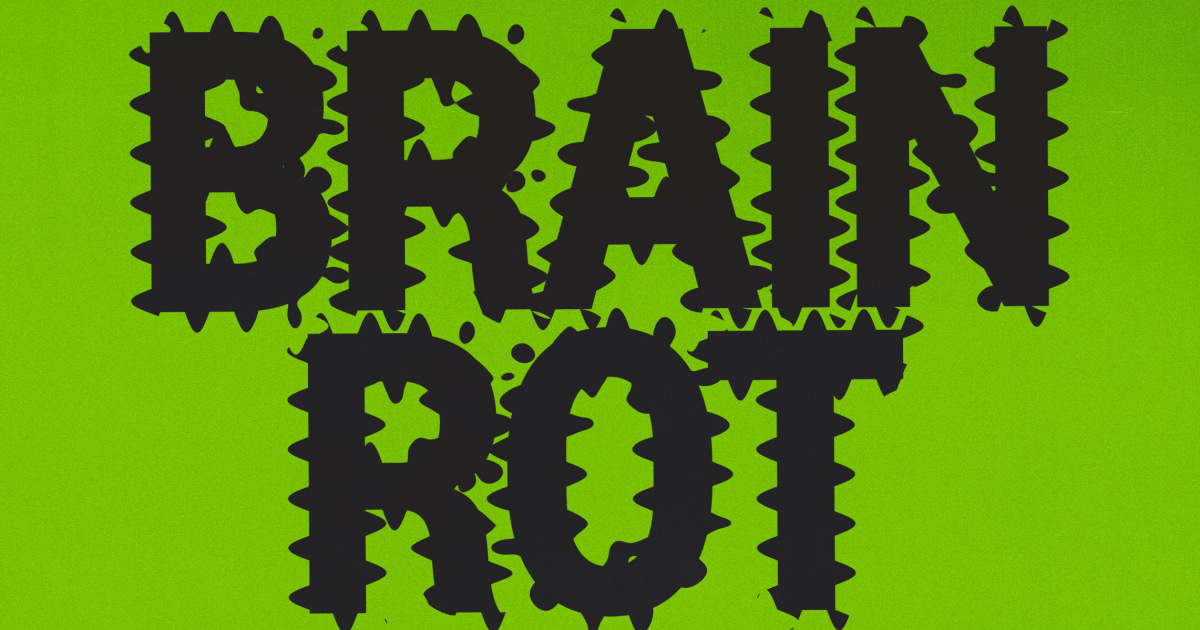
Gen Alpha’s hyper-online manner of speaking has officially entered the zeitgeist.
Oxford University Press announced Monday that “brain rot” — the catch-all term for bizarre and semi-unintelligible extremely online language — is its 2024 word of the year.
The academic publishing house defined brain rot as “the supposed deterioration of a person’s mental or intellectual state, especially viewed as the result of overconsumption of material (now particularly online content) considered to be trivial or unchallenging. Also: something characterized as likely to lead to such deterioration.”
The first use of “brain rot” preceded the internet: It was in Henry David Thoreau’s 1854 book “Walden.” But “the term has taken on new significance in the digital age,” Oxford University Press wrote, thanks in large part to Gen Z and Gen Alpha communities online. Gen Alpha are defined as children born after 2010. Their separation from Gen Z is a matter of being born in 2010 versus 2009.
“These communities have amplified the expression through social media channels, the very place said to cause ‘brain rot,'” Oxford Languages President Casper Grathwohl said in a statement. “It demonstrates a somewhat cheeky self-awareness in the younger generations about the harmful impact of social media that they’ve inherited.”
From 2023 to 2024, the term “brain rot” increased in usage frequency by 230%, according to Oxford University Press. The term is often used in “a humorous or self-deprecating manner by online communities,” Oxford University Press said. The lingo is often associated with words like: “sigma,” someone who is cool or a leader; “gyatt,” which is an exclamation for a curvaceous woman; and “Skibidi,” as in “Skibidi Toilet,” a term derived from a YouTube series that is now used to mean basically anything.
Just as it has in years past, Oxford University Press said it again enlisted the public’s help in choosing its word. More than 37,000 people voted this year. The term “brain rot” was selected from a short list of six words. The other words on the list were “demure,” “dynamic pricing,” “lore,” “romantasy” and “slop.”
“‘Brain rot’ speaks to one of the perceived dangers of virtual life, and how we are using our free time,” Grathwohl said. “It feels like a rightful next chapter in the cultural conversation about humanity and technology.”